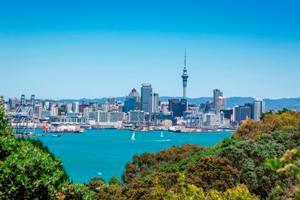Auckland – globally expensive rents and not enough places to live
Auckland’s rents are among the priciest in the world. The city has the dubious distinction of being the third most expensive city globally in which to rent.
Monday, November 20th 2023, 10:36AM  1 Comment
1 Comment

It is only behind Sydney and Tokyo.
The latest report by global real estate agency Knight Frank shows Auckland rents spiralled up by 13.1% over the 12 months to the end of the September. That is a 5.9% increase from the second to third quarter.
Property Investors Federation vice-president Peter Lewis says he would be surprised if rents had risen that much over that period. He says it may be possible for newly signed rental agreements, but would be astonished if it was for existing rentals.
“While many landlords have put up rents to existing tenants because costs have gone up in terms of insurance, rates and interest payments, I don’t think they would have risen that much.”
For example, Lewis says he tries to keep his rents at market level. On a $500 a week rental he would be putting the rent up $40-45 a week to keep up with rising costs. “That’s about a 8-9% weekly increase over 12 months.
“Providing rental accommodation is the only industry in New Zealand restricted to how often it can change or increase prices. Petrol stations, banks, supermarkets can put up prices as and when they wish, but for some obscure reason landlords are the only people who are restricted to one rent increase every 12 months.”
Knight Frank’s Prime Global Rental Index show rents are rising at a rate three and-a-half times their long-term pre-pandemic trend.
Strong global growth has pushed prime rents 17.9% above their pre-pandemic high in the third quarter of 2019 and 25.5% higher than the pandemic low of the first quarter of 2021.
Auckland’s rent rises can be put down to record numbers of new migrants flooding into the country and a lack of rental housing. Lewis says he has seen a big increase in the number of migrants looking for rentals. Earlier this year he rented one of his properties to a South African family on a two-year work visa.
He is expecting a house he has coming up for rent to attract a slew of applications from migrants.
In the year to September a record net gain of 119,200 people settled in this country, once those leaving have been accounted for. That is more people than live in Palmerston North or New Plymouth when not enough houses are being consented or built to keep pace.
Knight Frank says despite ongoing debates surrounding work-from-home arrangements and the challenges in the office sector in key cities, the data confirms the underlying strength of demand for city living and the resilience of accommodation requirements from workers in close proximity to CBDs.
However, the realtor can see limits to this process in terms of affordability. There comes a point where, even in markets with very strong demand and weak supply dynamics, tenants become unable to paying rents substantially higher.
However, Lewis says he has never had tenants leaving any of his properties because they couldn’t afford to pay the rent. “That is never entered into any conversations I have had with tenants.
“The problems arise when there is an increase in demand and those who can supply rentals are heavily penalised through Government legislation. It then turns into a rental shortage and prices go up.”
| « Many buyers, not enough properties again fuelling housing market | Solving the rental shortage – new legislation and a change of attitude » |
Special Offers
Comments from our readers
Sign In to add your comment
| Printable version | Email to a friend |




The BIG difference in Australia is that LANDLORDS are KING. Your Property manager will have a non- paying renter out in days, They are super mean people, but very good to Landlords.
WHICH IS THE WAY IT SHOULD BE !
Saying that, there is some very sub-standard accommodation, in NZ that needed to rectified. The Mum and Dad owners in NZ, generally did not rent properties that they would not live in themselves!